In the small, rural community of Darbun, along Bethlehem Loop Road in northern Walthall County, the past week and a half has been like a walking dream.
In rural Walthall county, tragedy and collective strength on full display
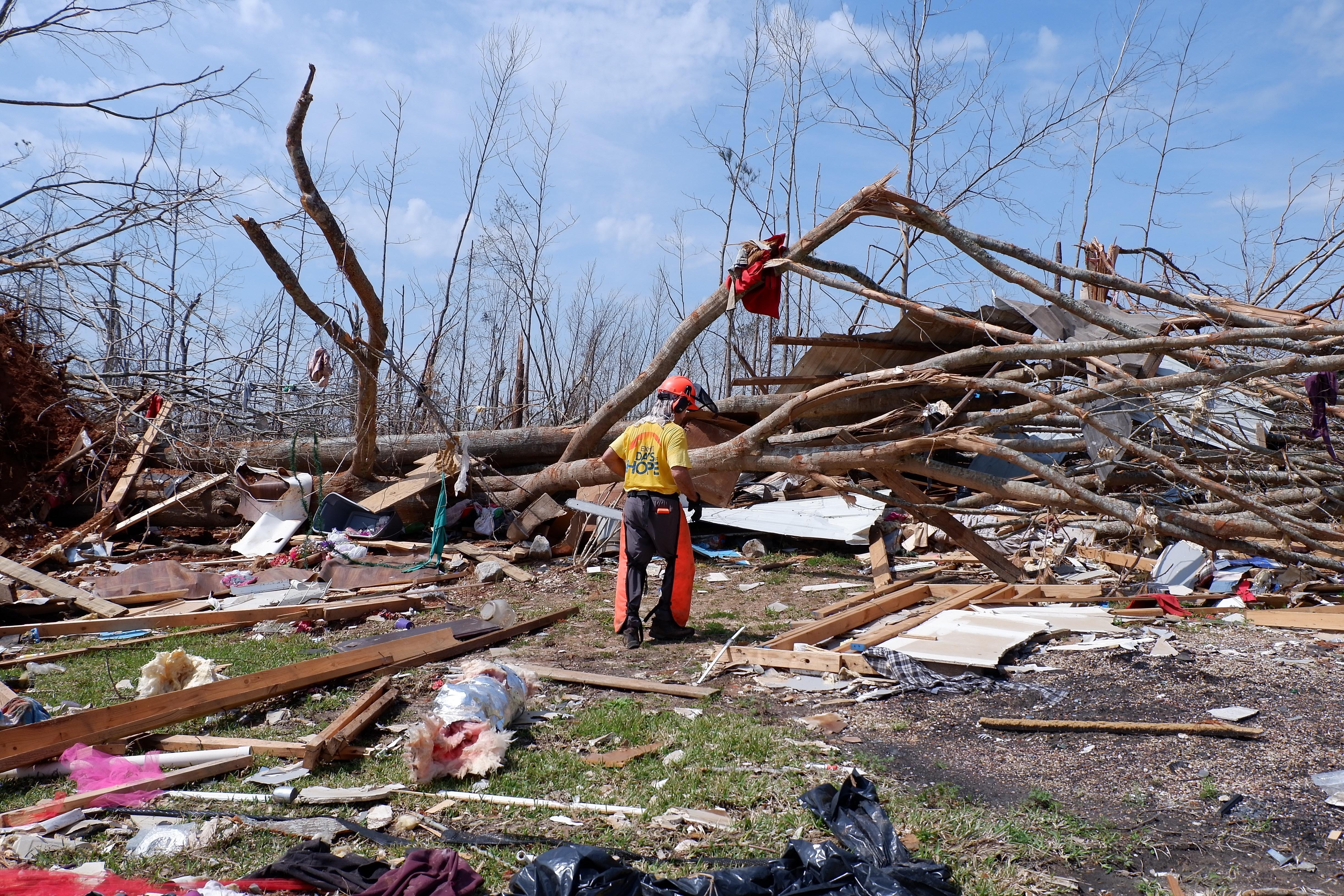

In the small, rural community of Darbun, along Bethlehem Loop Road in northern Walthall County, the past week and a half has been like a walking dream.

Michael McEwen
Darbun, Mississippi
On the night of March 15, Lorene Wilson’s daughter and only grandchild, seven year old Carter Smith, were in their home when the first, and strongest, tornado hit. Carter was thrown from the home into a fallen tree, then buried by debris, and killed.
Hours passed until Carter’s father, and the first batch of responders, were able to reach the secluded, mostly wooded community by foot. The only road in was blocked by a dangling transmission line, and dozens of pine trunks blocked their path.
“It's been very difficult losing him. It's not so much as the property for me, because you can always rebuild, you can always buy more lumber. But a life, you can't replace it. It is really going to be a road to travel for us, and it's really been hard for us to travel this road,” Lorene Wilson told MPB News.
“And it's been like a dream for the last few days. It's like you are in a dream and you can't wake up. But we know God don't make no mistakes. So we're just gonna trust him and believe that he knows what he's doing,” she said.
Four were killed in Darbun alone on March 15 by two destructive tornadoes that struck the region, part of a larger storm system that produced 18 total tornadoes across the state.
The strongest, rated by forecasters as an EF-4, or the second most-severe rating, traveled 65 miles after crossing from Louisiana into Mississippi, wiping out entire homes and scattering them into pieces over acres of pine woods beyond recognition.
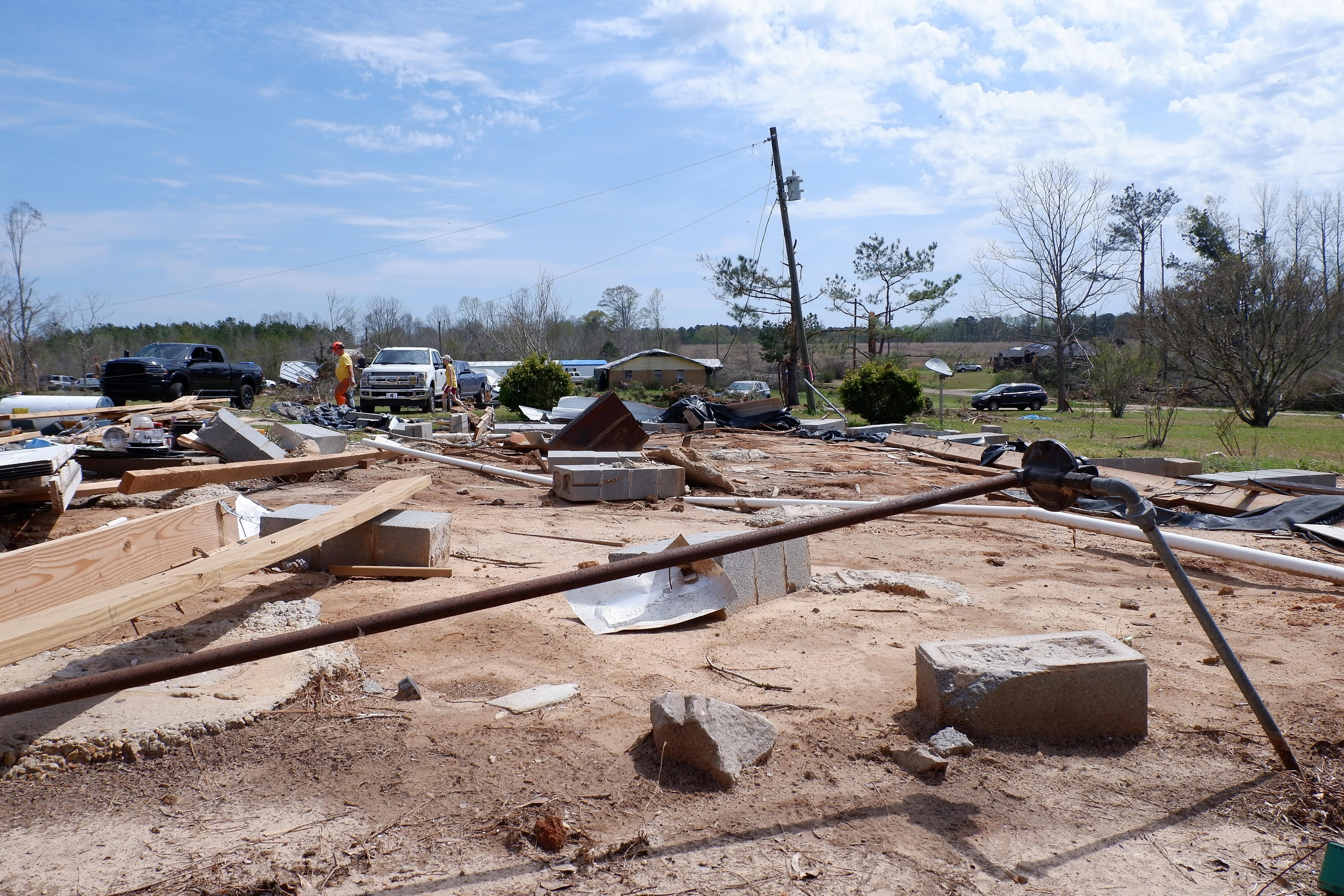
(Michael McEwen / MPB News)
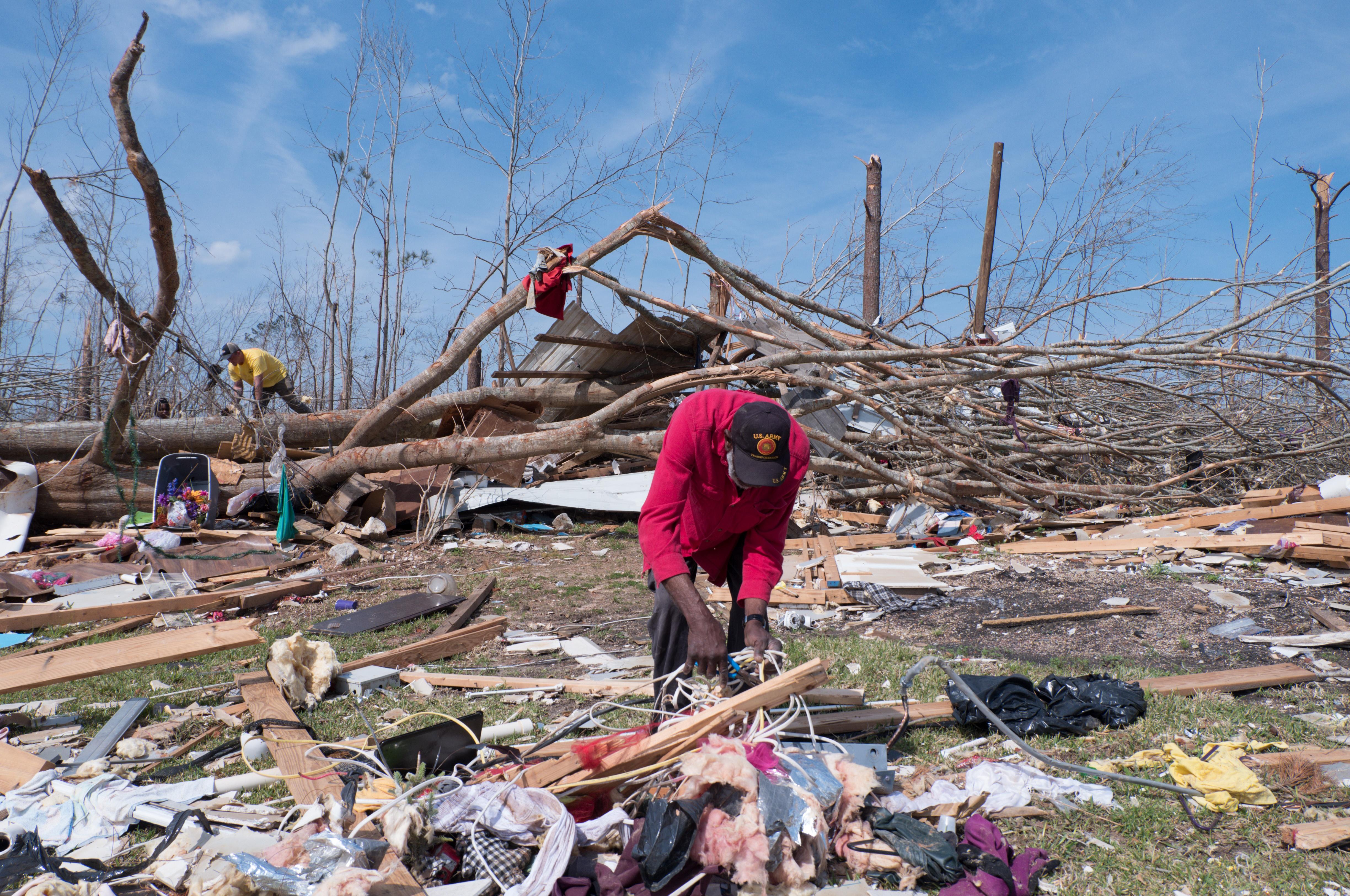
(Michael McEwen / MPB News)
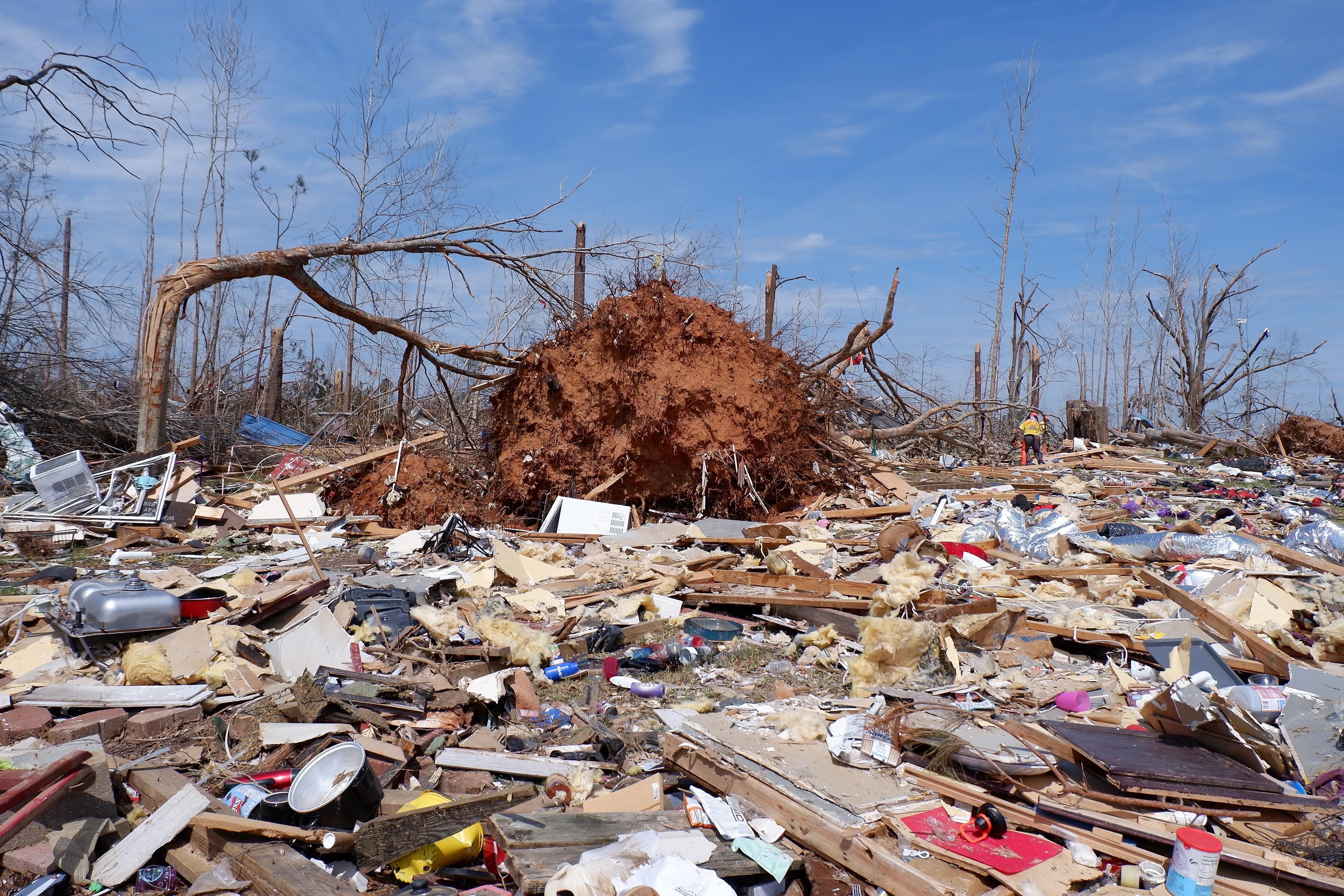
(Michael McEwen / MPB News)
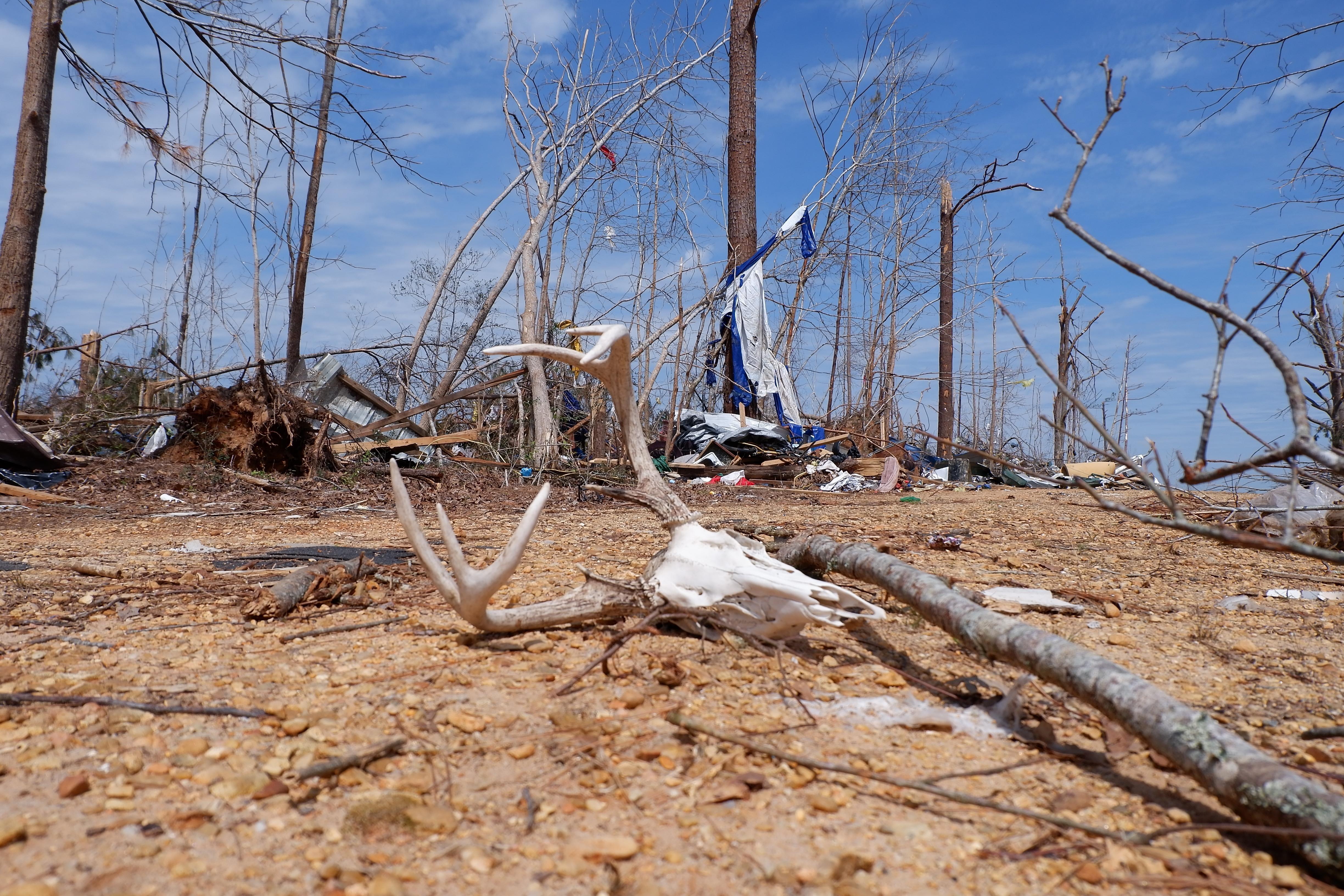
(Michael McEwen / MPB News)




The house shared by Carter Smith and his mother was blown completely off its slab, leaving behind exposed piping, steel construction material and miscellaneous signs of life of the home before the tornado: shattered bed frames, scattered groceries and a set of Spiderman pajamas that belonged to Carter.
According to a preliminary assessment issued by the National Weather Service, Jackson, winds were close to their peak of 170 miles-per-hour when the tornado struck their home.
Close to two weeks after the storms, much of their property remains in the state they found it in on March 15. That means the concept of cleanup, and then moving onto recovery, remains a tall order for the Wilsons.
Carter Smith was laid to rest with family and other community members present in a small cemetery on March 23, overlooking rolling, verdant spring hills of pasture and pine stand, just as the azaleas and blue phlox began to bloom.
Lorene, her husband and her daughter are leaning on the community's collective strength -- and their faith -- to make it through one of the hardest periods of their lives.
“We've always had good people in this area. Walthall County, Jayess, awesome people. But they're gonna rebuild,” she said. “This is our home. We can't just run off and leave what we have; it's not like we're multi-millionaires. We can just pick up and go somewhere else. This is our home.”
About 20 miles to the southwest of Darbun, the Paradise Ranch RV Park is now a shell of its former self.

Michael McEwen
Southwest Tylertown
Among hundreds of now-empty lots and several destroyed cabins, the only presence at the resort is large excavators clearing the few trees still standing.
Just across the street, along the west bank of the winding, sandy Bogue Chitto river, a few property owners are picking through piles of what were once their homes, now reduced to rubble, for any semblance of their life before.
The small community immediately adjacent to Paradise Ranch consists mostly of trailers and mobile homes, nearly all of them uninsured because both state and county regulations prohibit insuring them in the first place.
“I went to three different companies to try to get insurance, but it was so outrageous and I said well, I got two choices: buy insurance and go hungry or eat. And I chose to eat,” Bobby Blancett, a local resident, told MPB News.
“I'm on fixed income, and I've got my automobiles insured. Now, if I insure my house, something's gonna go without. I'd rather do without and just keep eating. And if God takes this place, he takes it.”
Bobby and his wife, Donna, are longtime residents of rural Walthall County, and were in their home when it suffered a direct hit by the same EF-4 tornado that later struck Darbun, in the county’s dispersed northeast.
After stepping outside and seeing the tornado descending on them, the couple sought refuge in their trailer’s bathroom. Seconds later, it hit, and both describe the next few moments as if their house exploded on top of them.
“I can't explain that. I’ve never been through nothing like that in my life and don't ever want to do it again,” Donna Blancett told MPB News.
Bobby continued, “I got some advice for the people who live in a mobile home and you hear a tornado warning: get out. We have never run from bad weather, never, but I'll tell you from experience, if I ever hear of another tornado warning I will go somewhere.We're supposed to be dead, but by the grace of God, we're living.”
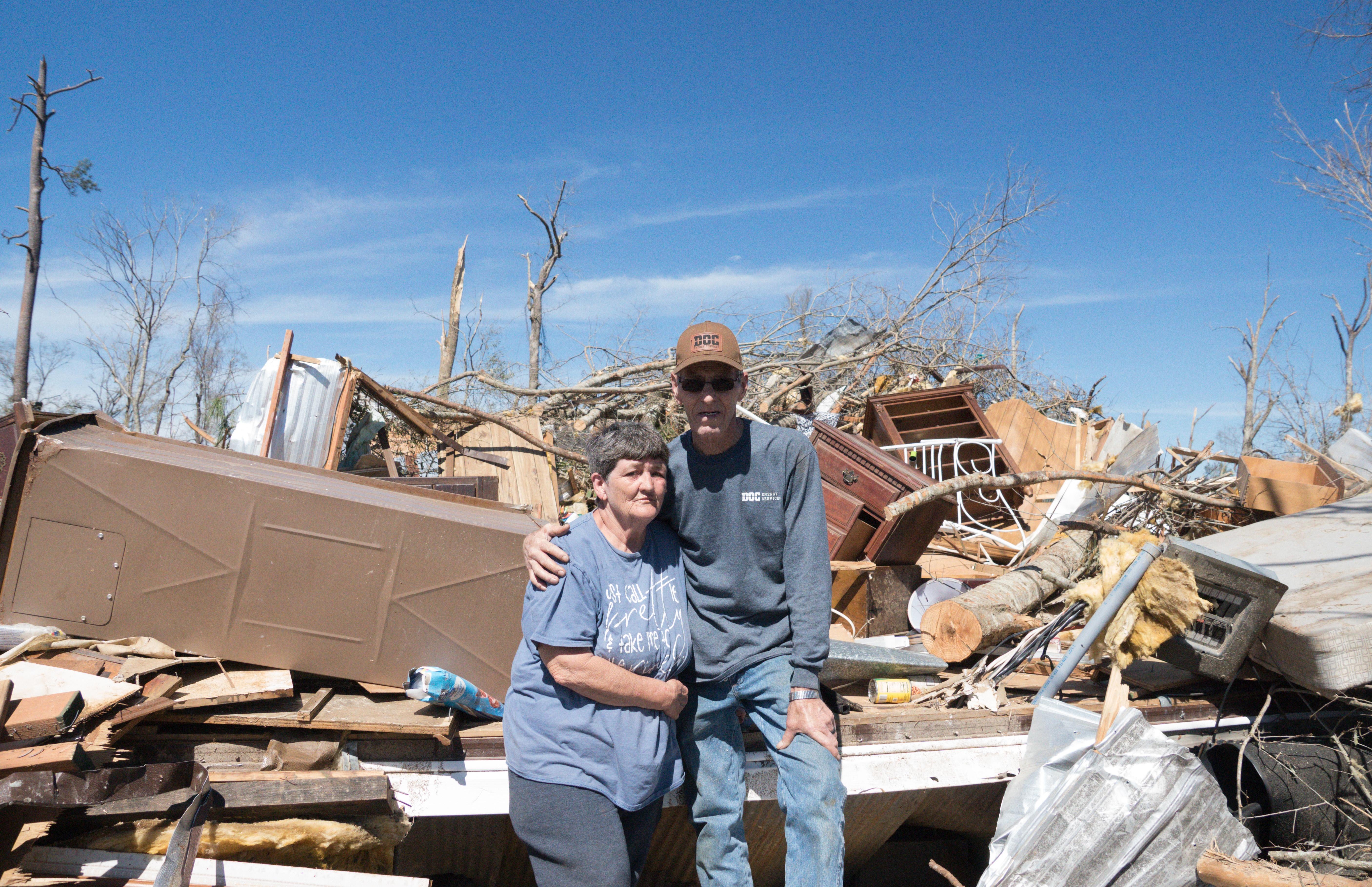
After the tornado passed, the Blancetts had to dig themselves out of rubble that piled on top of them, including the home’s stove, which Bobby says saved him from being crushed by a fallen tree. Donna wasn’t quite as lucky, suffering a few broken ribs inflicted by the same fallen tree.
When they freed themselves from the rubble of their home, it was still raining, and a strong wind carried on the back of the tornado lashed at them. The couple sought shelter under a neighbor’s shed, and decided to wait for help to arrive, equally reeling and in shock from what occurred only minutes before.
But as they waited, Bobby and Donna instead heard neighbors and first responders calling out their names into the rubble, fearing the elderly couple were still buried, and possibly dead.
As the weather began to clear, Bobby walked toward the Bogue Chitto to check on his 14-foot jon boat he’d tied up to a shoreline tree. He found the boat’s lightweight aluminum hull wind-wrapped around the base of that same tree, its engine ripped from the mount and thrown across the river.
But he says that’s a relatively minor loss, even with the destruction of his home, because families like the Wilsons, in Darbun, lost much more.
“That boat can be replaced. Everything we can see here are material things. I don't care; me and my wife are walking. I ain't worried about this junk, and it took me a lifetime to acquire what I got. But you know what? It can all go somewhere. Me and my wife's alive. We're walking around."